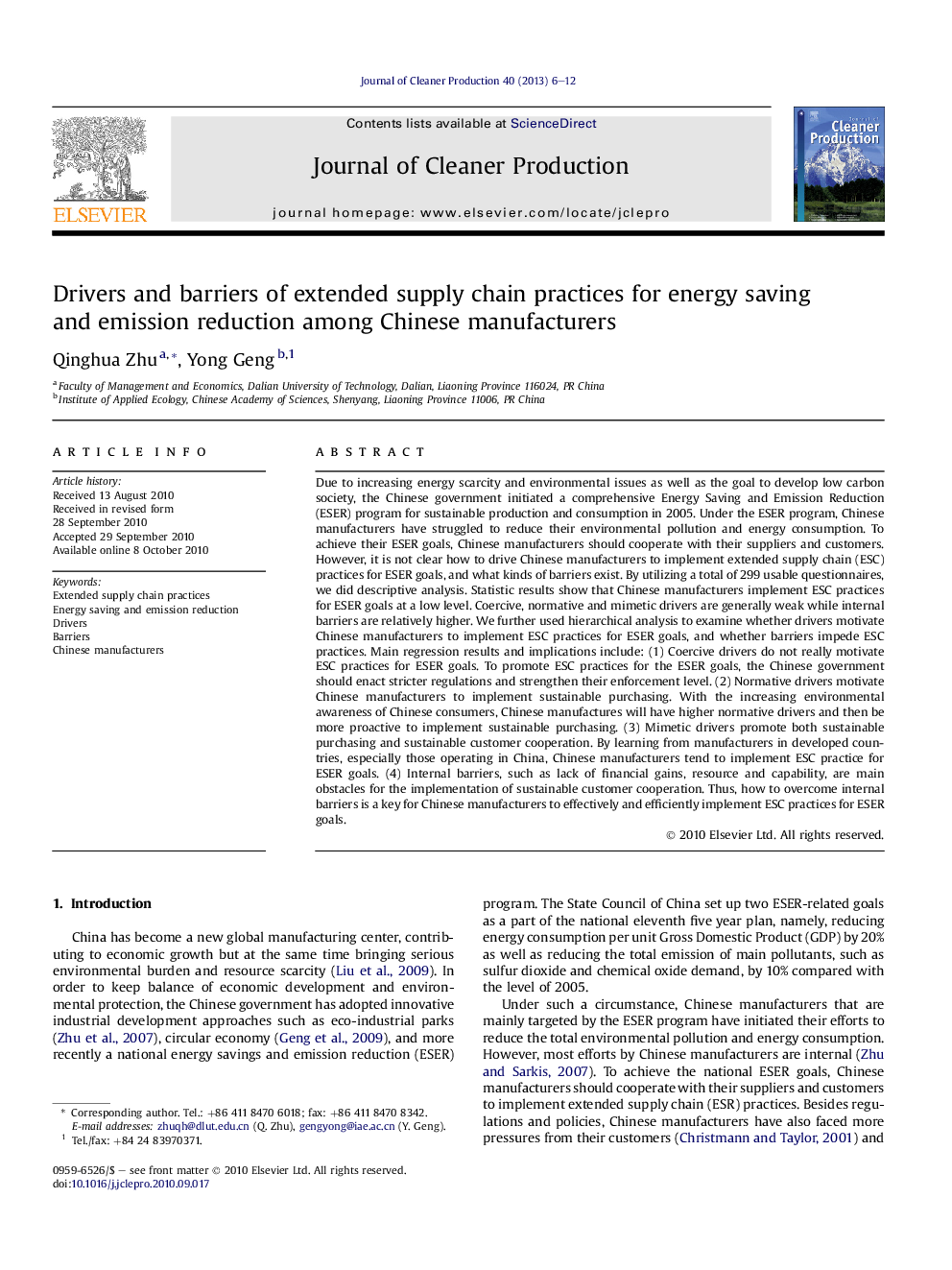| Article ID | Journal | Published Year | Pages | File Type |
|---|---|---|---|---|
| 1745580 | Journal of Cleaner Production | 2013 | 7 Pages |
Due to increasing energy scarcity and environmental issues as well as the goal to develop low carbon society, the Chinese government initiated a comprehensive Energy Saving and Emission Reduction (ESER) program for sustainable production and consumption in 2005. Under the ESER program, Chinese manufacturers have struggled to reduce their environmental pollution and energy consumption. To achieve their ESER goals, Chinese manufacturers should cooperate with their suppliers and customers. However, it is not clear how to drive Chinese manufacturers to implement extended supply chain (ESC) practices for ESER goals, and what kinds of barriers exist. By utilizing a total of 299 usable questionnaires, we did descriptive analysis. Statistic results show that Chinese manufacturers implement ESC practices for ESER goals at a low level. Coercive, normative and mimetic drivers are generally weak while internal barriers are relatively higher. We further used hierarchical analysis to examine whether drivers motivate Chinese manufacturers to implement ESC practices for ESER goals, and whether barriers impede ESC practices. Main regression results and implications include: (1) Coercive drivers do not really motivate ESC practices for ESER goals. To promote ESC practices for the ESER goals, the Chinese government should enact stricter regulations and strengthen their enforcement level. (2) Normative drivers motivate Chinese manufacturers to implement sustainable purchasing. With the increasing environmental awareness of Chinese consumers, Chinese manufactures will have higher normative drivers and then be more proactive to implement sustainable purchasing. (3) Mimetic drivers promote both sustainable purchasing and sustainable customer cooperation. By learning from manufacturers in developed countries, especially those operating in China, Chinese manufacturers tend to implement ESC practice for ESER goals. (4) Internal barriers, such as lack of financial gains, resource and capability, are main obstacles for the implementation of sustainable customer cooperation. Thus, how to overcome internal barriers is a key for Chinese manufacturers to effectively and efficiently implement ESC practices for ESER goals.
